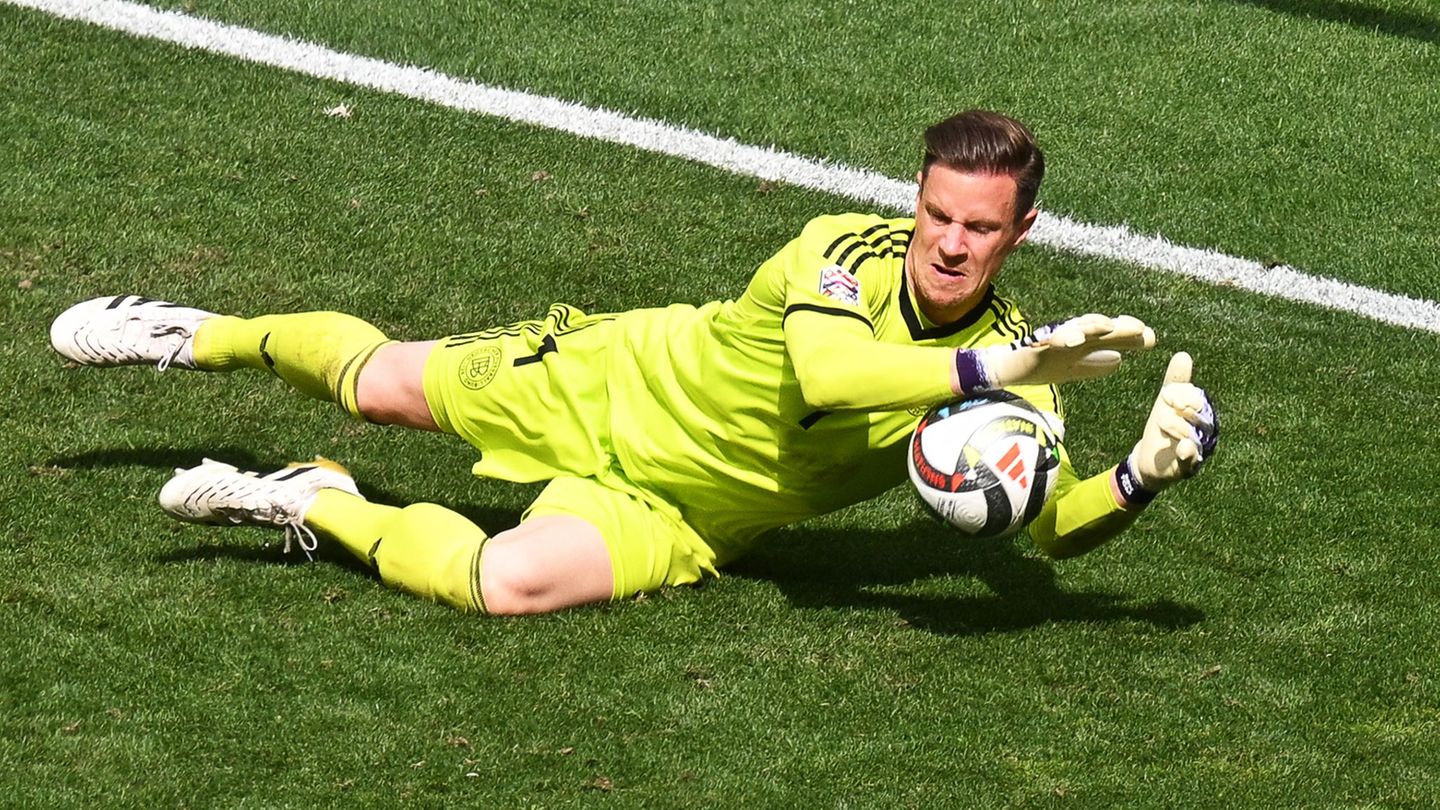Last year, Philipp Nawrath awarded the Olympic victory for the German relay team in Beijing. Now he leads the overall World Cup. Thanks to your own strength – and the tips of a German biathlon hero.
Philipp Nawrath’s biathlon fairy tale almost came to nothing. When the 30-year-old broke his metatarsal and tore the ligaments during a soccer game in May, starting in the World Cup suddenly seemed a long way off, but running on crutches was a bitter reality.
Less than seven months later, the Allgäu native is suddenly number one in the world, surprisingly leads the overall World Cup after the first stop and travels to the races in Hochfilzen on Friday with the yellow jersey. “It’s crazy. You’ve already done so many races and then something like this happens,” Nawrath told the German Press Agency: “I’m incredibly grateful for everyone who helped me on this path.”
Nawrath has been running in the elite ski hunter league since 2016/2017 and his potential has been described again and again. But he was far too rarely able to “get the horsepower onto the road,” as sports director Felix Bitterling described it. Until he won the sprint in Östersund on Saturday and made it onto the podium again a day later as second in the pursuit. As a reward, after three individual races he leads the overall standings with one point ahead of the Swede Sebastian Samuelsson. “Sure, it’s just the beginning of the season and it’s still a long way away,” said Nawrath about the overall World Cup victory. Nevertheless, the strength of the German men in their first appearances was remarkable.
Nawrath, the risk shooter
The late bloomers Nawrath and Roman Rees, who is also already 30, won in Östersund for the first time ever and each wore yellow. “Maybe the 3 had to come first in terms of age,” joked Nawrath. The strongly favored Norwegians were particularly shocked, as they apparently had problems with the new fluorine-free ski wax. “You used to be able to fly on skis without a lot of upper body strength. I think that’s no longer the case,” said five-time Olympic champion Johannes Thingnes Bö, who is still waiting for his first triumph: “Now I’m just too weak, So I need to build more muscle.”
Powerhouse Nawrath doesn’t have to do that, especially since the skis worked perfectly. And he’s finally able to do the standing shooting, which was his big weakness. With the change from national coach Mark Kirchner to Uros Velepec, the focus shifted to quick shooting with a lot of risk. Nawrath implements this consistently without regard to losses. “He did the risk shooting perfectly,” praised Velepec.
Too many mistakes have cost Nawrath good results on several occasions. Just like with the German Olympic relay team in Beijing last year. As the last runner, he had to go into the penalty loop in the standing stage, which meant he not only won a medal, but even a possible Olympic victory. “I’m so sorry,” Nawrath whispered to teammate Erik Lesser at the finish. “He could have been a superstar if he had won the gold medal today,” Lesser said at the time.
How long will Nawrath keep the yellow jersey?
But instead of precious metal there was only fourth place. Nawrath recovered from the low blow and is now in a new position. Hardly anyone had expected German victories among the men so early, and they even had their best start ever. After the resignations of Arnd Peiffer, Simon Schempp and Lesser, Benedikt Doll was considered the only remaining world champion as a beacon of hope. But Nawrath in particular shone.
Can he keep the yellow jersey for long? In any case, it will be an extremely difficult task. “I want to fight for it,” he said. There are also tips from Michael Greis. Both were born in Füssen and are members of the Nesselwang ski club. When Nawrath was a child and saw Greis on television at the 2002 Olympic Games in Salt Lake City, he also wanted to become a biathlete. “You can say that I started because of him. Today we are in constant contact,” said Nawrath. And of course Greis, who won three gold medals at the Winter Games in Turin in 2006, was also among the congratulators. “The cell phone was very overwhelmed,” revealed Nawrath, who wants to answer all the congratulatory messages. “For me it wasn’t a surprise, but rather a confirmation of what is possible if Philipp delivers a perfect race,” said Greis to the dpa.
Double Olympic champion Laura Dahlmeier personally congratulated her. “I was very happy for Philipp. We have known each other for a long time,” said the ZDF expert. Because what is not so well known: Nawrath also belonged early on to a training group led by coach Bernhard Kröll with Dahlmeier, Magdalena Neuner and Miriam Gössner, all of whom became world champions. “I am very grateful that I was accepted into the group back in 2011,” said Nawrath. From there the path took him to Ruhpolding, then to the World Cup and six years later to the top. “I will do everything to ensure that it continues like this,” said Nawrath.
Source: Stern
I am Pierce Boyd, a driven and ambitious professional working in the news industry. I have been writing for 24 Hours Worlds for over five years, specializing in sports section coverage. During my tenure at the publication, I have built an impressive portfolio of articles that has earned me a reputation as an experienced journalist and content creator.




